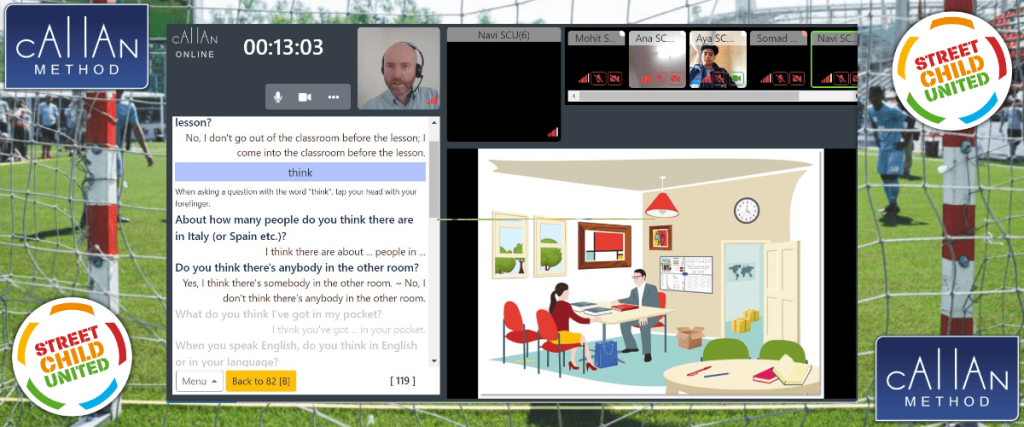A ground-breaking educational initiative from London is helping 40 young people across 12 developing nations gain rapid English fluency, thanks to a partnership between the Callan Method Organisation and global charity Street Child United (SCU).
The Callan-SCU programme offers structured English lessons three to four times a week, helping participants progress from beginner to intermediate levels within just one year.
This focused approach has delivered remarkable results and given young people from diverse backgrounds the opportunity to develop essential communication skills for education, employment, and future opportunities.
“We’ve seen significant growth in our confidence within just 3-4 months of Callan lessons. Now, we can lead conversations with visitors without hesitation,” report Asman, Delice, and Innocent from Burundi.
Participants from Bangladesh, India, Indonesia, Palestine, Mauritius, Nepal, Sri Lanka, Burundi, Tanzania, Mexico, Peru, and Bolivia are benefiting from this UK-led initiative. The program represents an alternative to traditional charity models by focusing on sustainable, skills-based support rather than short-term aid.
“The lessons are dynamic, engaging, and highly interactive. This approach has made my learning experience both enjoyable and effective,” added Deyna from Bolivia.
Street Child United, famous for hosting the Street Child Football World Cup and championing the rights of street-connected youth, teamed up with the Callan Method to make the most of its quick-paced language learning approach.
Unlike traditional language learning methods, the Callan Method encourages students to listen, think, and speak in English from the start. By eliminating translation, students build natural fluency in a manner that mimics how we acquire our first language – through continuous exposure and practice.
This partnership has allowed participants to build the communication skills needed to confidently interact with global audiences, turning them from passive listeners into active voices in international conversations.
UNESCO data shows a huge gap in literacy rates between different regions, with millions in South Asia and sub-Saharan Africa still lacking access to education. By providing equal-opportunity English education, the program helps tackle the educational barriers that hold back economic independence and social mobility.
The initiative has overcome significant challenges, including coordinating across multiple time zones, managing multilingual groups, and ensuring reliable internet access for participants in tough-to-reach areas. Offering flexible scheduling and adjusting to individual needs has kept engagement high and delivered strong learning results.
With continued investment in digital infrastructure and education, UK-led programs like this could be key in bridging global literacy gaps – one online lesson at a time.


